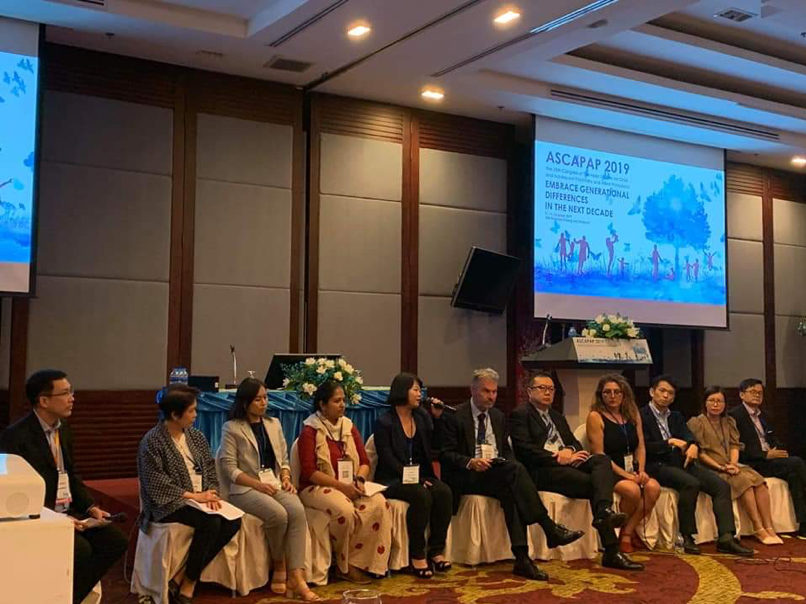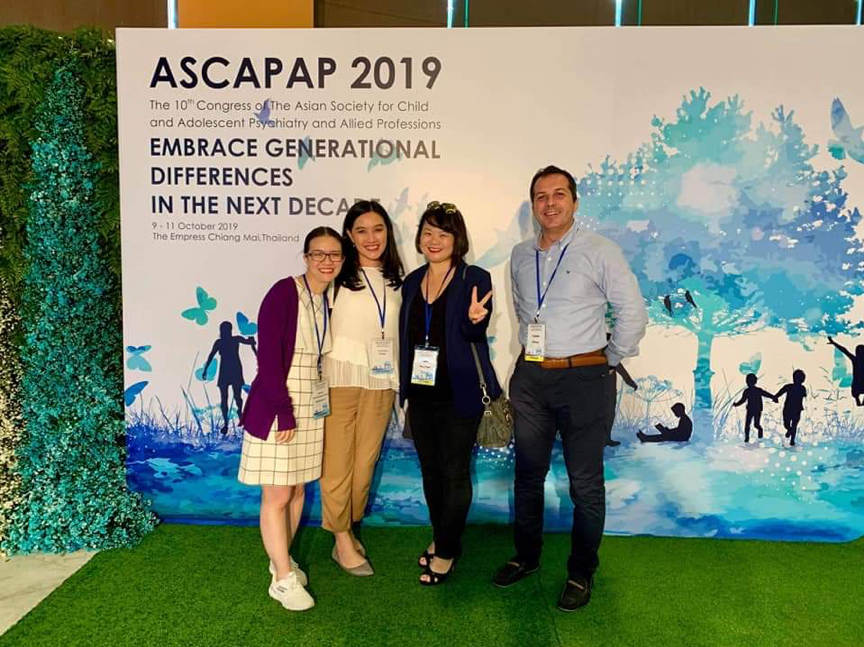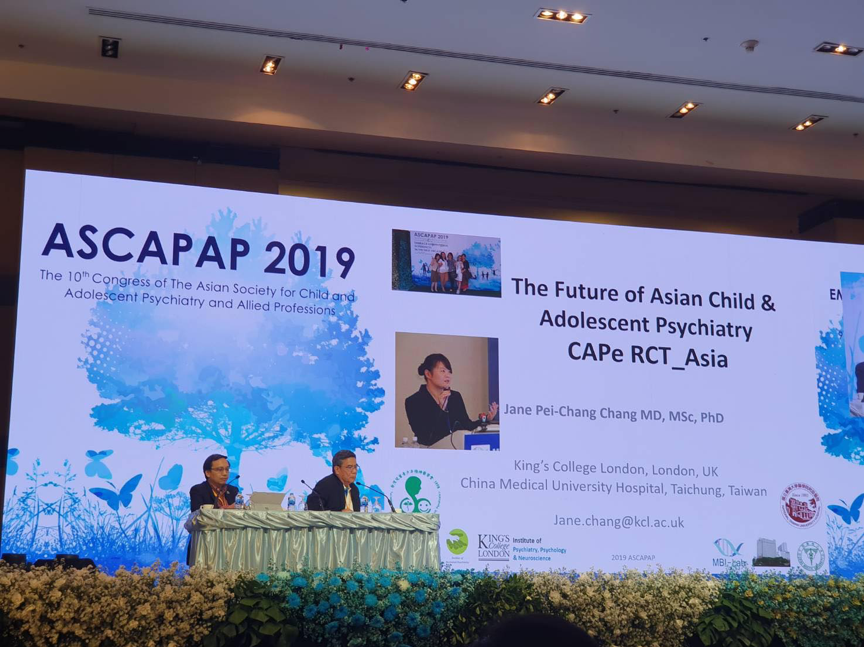The 2019 ASCAPAP Congress – Linking Research, Training and Clinical Services
Jane Pei-Chen Chang, China Medical University Hospital, Taiwan; King’s College London, UK
In this article, I present my experience when I attended the 10th Congress of the Asian Society of Child and Adolescent Psychiatry and Allied Professions (ASCAPAP) Congress held at The Empress Chiang Mai in Thailand, from the 9th to 11th of October, 2019. It was quite an experience!
I was invited by Dr. Wachiraporn Arunothong and the ASCAPAP Congress’ Scientific Committee to present about child and adolescent psychiatric training in Taiwan in the “C&A Psychiatry Training in Asia Symposium”.
The Symposium consisted of two sessions that included presenters from 9 different countries (in the order of presentation): Thailand, Vietnam, Singapore, Myanmar, India, Taiwan, Japan, Australia and the USA and with Dr. Nuttorn Pityaratstian as the symposium chair. It was interesting to learn about different training programs across Asia and discuss how ASCAPAP can play a role in integrating the different training programs so that more clinical and research collaboration can be facilitated among child and adolescent psychiatrists in Asia. There were several similarities between the training programs, for example, several countries require to pass both written and oral examinations before one can become a board-certified child and adolescent psychiatrist. On the other hand, the duration of training varies from country to country ranging from a year to 3 or 4 years, and in some countries, general psychiatry training is required before one can choose child and adolescent psychiatry as a subspecialty, while trainees in other countries have the option of going straight into child and adolescent psychiatry training after medical school.

Panel discussion of the “C&A Psychiatry Training in Asia Symposium.”
One of the challenges facing the field is that the number of applications for child and adolescent psychiatry from medical students or psychiatric residents has been static or even decreased in recent years. Another challenge is the lack of peer support during child and adolescent psychiatric training. During the panel discussion, both the audience and the presenters discussed the possibility of forming an educational board that would try to come up with common training courses for child and adolescent psychiatrists in Asia. As for the lack of peer support during child and adolescent training, I shared my experiences as a trainee in several fellowship programs that helped foster my training and provided me with great mentorship and peer support. These fellowship programs include The Donald J Cohen Fellowship and Helmut Remschmidt Research Seminar (HRRS) Fellowship of IACAPAP and The International Training Seminar in Child & Adolescent Psychiatry.
Another interesting experience at the congress this year is having the opportunity to present with my colleagues, Dr. Hussien Elkholy, Dr. Fransiska Kaligis and Dr. Nisarat Wadchareeundomkarn, from Egypt, Indonesia and Thailand respectively a symposium entitled “Child and Adolescent Psychiatry: From Patients to Doctors.” We not only discussed the common disorders such as ADHD, adolescent depression and suicide and college student gaming disorders seen in clinics in different countries, we also discussed how our careers as child and adolescent psychiatrists have shaped our lives and the strategies, such as travel, we use to cope with our stress as clinicians. The symposium was a great success, and we have received a lot of positive feedback from the audience.

From left to right: Nisarat Wadchareeundomkarn, Fransiska Kaligis Jane Pei- Chen Chang and Hussien Elkholy
Finally, it was a great honor to receive “The Future of the Asian Child and Adolescent Psychiatry Award” at the Congress. There were only 5 awardees chosen this year, and I was very lucky to be one of them. I presented my idea at The Future of Asian Child and Adolescent Psychiatry Plenary Session on the last day of the Congress. My idea is CAPe RCT_Asia, which stands for child and adolescent psychiatry and e-world in research, clinical and training in Asia. It consists of three parts to help strengthen child and adolescent psychiatric clinical services, research and training in Asia with artificial intelligence (AI) and the help of ASCAPAP. One of the goals of CAPe_RCT_Asia is to provide better clinical services, including establishing a data bank of child and adolescent psychiatrists and associated professionals that are multilingual, so that it is easier for people to find psychiatry/psychotherapy services offered in their native languages. Also, we aim to develop visual learning and AI-assisted interventions so that more child and adolescents can benefit from the psychoeducational programs and interventions by simply having a smartphone and Wi-Fi. CAPe_RCT_Asia is also aimed to improve the accessibility of training programs for child and adolescent psychiatrists in countries with fewer resources. The third goal is to establish a research data bank to facilitate research collaboration by including the names and research interests of child and adolescent psychiatrists in Asia.

CAPe_RCT_Asia Project Presentation
It was a wonderful experience in Chiang Mai to meet many friends and colleagues who share the same passion for child and adolescent psychiatry. Dr. Daniel Fung, the president of IACAPAP, also welcomed all of us to Join IACAPAP’s Congress in Singapore next year during his plenary session. For me, the career of being a child and adolescent psychiatrist has been more exciting than ever, it never gets boring, and there are always a lot more to learn. Looking forward to learning about new research in child and adolescent psychiatry at the 2020 IACAPAP Congress in Singapore next year!

